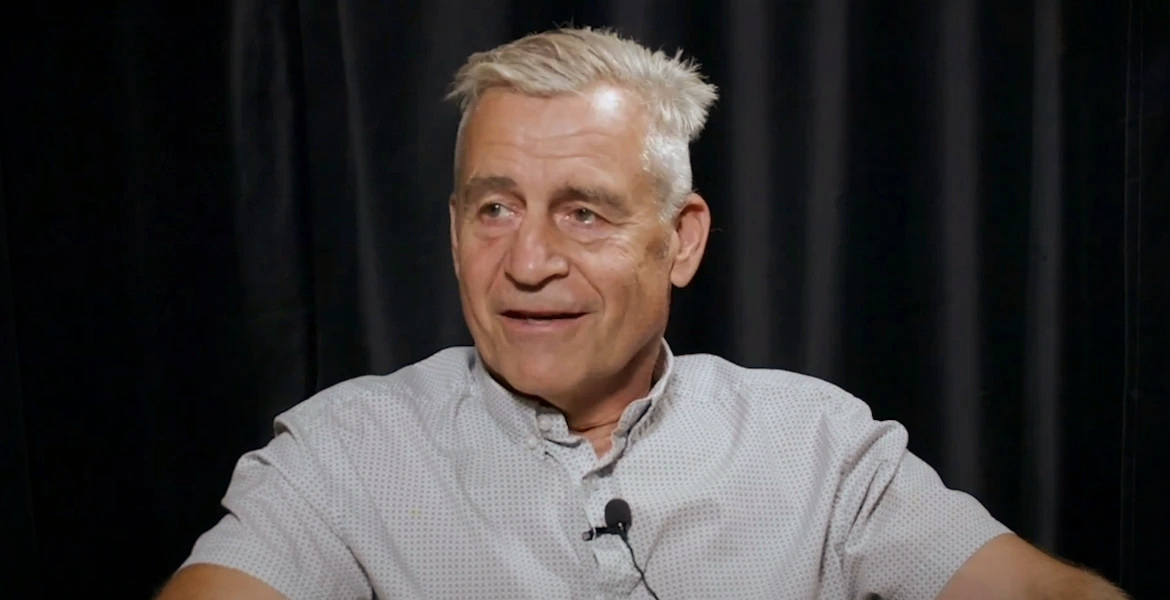Outspoken nationalist activist and entrepreneur Carl Lundström died this week in a plane crash in Slovenia. He was 64 years old.
Lundström was on his way in his propeller plane to Switzerland from Croatia's capital Zagreb when the plane suddenly started to lose altitude and soon crashed over the Slovenian mountainous area of Velika Planina. According to local media, Lundström's plane crashed into a mountain hut that was split in half and the 64-year-old was alone in the plane at the time.
Initially, weather conditions were too difficult for rescue services to reach the crash site, but around lunchtime on Monday, the wreckage of the plane was found along with the deceased Lundström.
Carl Lundström made a name for himself over the years as one of Sweden's most outspoken and controversial entrepreneurs. He was one of the heirs to Wasabröd and its subsidiary OLW. When the companies were sold to a Swiss group in the early 1980s, Lundström became a multi-millionaire.
Unlike most other wealthy financiers, however, Lundström was not at all a supporter of the political establishment and the financial interests that de facto govern Sweden and the Western world. On the contrary, over the years he chose to get involved in and spend large sums of money on what he saw as a fight for a better Sweden.
Long-standing involvement
For the general public, Lundström was perhaps best known for providing technical services to the file-sharing site The Pirate Bay through his company Rix Port80
It is also worth noting that in 2009, Carl Lundström was sentenced to prison and damages of almost SEK 50 million (€4.5 million) for aiding and abetting copyright infringement, after providing internet access and computers to the men who ran The Pirate Bay
The verdict was widely seen as a major legal scandal, and it emerged that US interest groups and officials had apparently influenced and pressured Swedish ministers to act against the file-sharing site. Furthermore, a police officer involved in the investigation was later given a well-paid position at Warner Brothers, and the judge in the case was himself a board member of several copyright organizations
At the same time, Lundström was involved in much broader social activism, and as early as the 1980s he began to get involved in movements that wanted to change migration policy and the burgeoning population exchange project that was then in its infancy For the rest of his life, this remained an important issue for Lundström, who was also highly critical of the EU, the rise of globalism and the influence of the Jewish lobby in Sweden and the West
"Afraid of their own people"
Lundström was not discouraged by the verdict, however, and continued to be an uncomfortable voice, engaging both politically and economically in issues where he felt the powers that be were treating people unfairly
Vi lyssnade inte på Carl Lundström medan han levde. Kanske dags att börja göra det nu när han är död? pic.twitter.com/j9AgH75uGG
— Jum-Jum (@Bardamu53) March 12, 2025
English translation of above tweet: "We didn't listen to Carl Lundström when he was alive. Maybe it's time to start doing so now that he is dead?
Carl Lundström: SD (Sweden Democrats) is worse than the Moderates. The Moderates have always been an extension of NATO, the EU, and the Pentagon - and have never hidden their views. But SD ran on a platform of Swedish neutrality and independence. SD are traitors not 'just' to Sweden like the Moderates, but also to their own voters."
"As far as Sweden and Germany are concerned, there are no people who can be called 'leaders' in the sense of national popular leaders. We have party leaders. They lead party cartels supported by an alternative-less mass media and a highly politicized administration. Leaders, on the other hand, are people who have genuine popular support for their entire political mission. Such do not exist in Western Europe today", he wrote on social media just days before his death.
"What is it that 'European leaders' are afraid of? It sure as hell isn't Russia. They are afraid of their own people. The people can unite and rise up and demand new order just like in the US. Since Trump II came to power in Washington, Europe's shitty 'leaders' can no longer rely on the veiled threat that the US would intervene militarily in European politics and stifle any autonomous and independent political alternative to the current EU/NATO empire", he continued.





